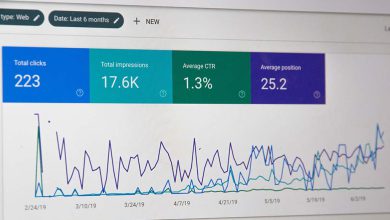What is Black Hat SEO? + Black Hat SEO Techniques You Must Avoid

Black Hat SEO refers to a set of unethical and manipulative practices used to boost a website’s search engine ranking. These practices violate search engine guidelines and aim to exploit loopholes in algorithms to achieve quick and often short-lived results. Black Hat SEO can provide immediate gains, but in the long run, it can severely damage a website’s online presence and reputation.
Black Hat SEO has a long history, dating back to the early days of search engines when their algorithms were less sophisticated. Websites would manipulate the system by using unethical tactics to rank higher, disregarding the relevance and quality of content. Before reading this article make sure that you have read our previous guide to what is SEO.
White Hat SEO vs. Black Hat SEO
White Hat SEO, in contrast to its unethical counterpart, involves using legitimate and approved tactics to improve a website’s rankings. White Hat techniques focus on providing valuable content, optimizing meta tags, building quality backlinks, and ensuring a positive user experience. These strategies align with search engine guidelines and aim to create a sustainable online presence.
Keyword Stuffing: A Black Hat Technique
Keyword stuffing involves excessively using target keywords in a piece of content, intending to manipulate search engine algorithms. This on-page SEO practice not only makes the content unreadable and unengaging but also raises red flags for search engines, leading to potential penalties.
Hidden Text and Links: Unveiling Black Hat Tactics
Hidden text and links involve using CSS to hide content from users while making it visible to search engines. This tactic misleads search engine crawlers, as the hidden content may not be relevant to the visible content, leading to misleading search results.
Cloaking: The Deceptive Black Hat Strategy
Cloaking entails showing different content to users and search engines. This deceitful practice attempts to trick search engine bots into ranking a page for certain keywords while presenting unrelated content to users. Search engines take cloaking seriously and penalize websites caught engaging in this tactic.
Link Farming: A Hazardous Black Hat Approach
Link farming involves creating a network of websites with the primary purpose of linking back to each other. This off-pafe SEO technique aims to artificially boost link popularity and manipulate search engine rankings. However, search engines now possess sophisticated algorithms that can easily detect link farms and penalize the involved websites.
Duplicate Content: A Shortcut to Penalties
Using duplicate content across multiple pages or websites is a significant violation of search engine guidelines. Search engines prioritize unique and valuable content, so duplicating material can lead to lower rankings or even exclusion from search results.
Article Spinning: Unoriginality at Its Worst
Article spinning refers to the process of using software to generate slightly altered versions of existing content. The intention is to make the content appear unique while avoiding the effort of creating original material. However, search engines can easily identify spun content and penalize websites employing such techniques.
Automated Queries: Playing with Fire
Automated queries involve using software to send numerous requests to search engines, potentially causing server overload. This practice violates search engine guidelines, as it hinders their ability to provide accurate and timely results to users.
Sneaky Redirects: A Black Hat Diversion
Sneaky redirects involve sending users to a different page than the one they clicked on, often leading to irrelevant or malicious content. This manipulative tactic misleads users and can result in severe penalties from search engines.
Paid Links and Link Buying: Beware of the Consequences
Purchasing links or engaging in paid link schemes to manipulate search rankings is a common Black Hat SEO technique. Search engines consider this practice deceptive and unnatural, and websites caught buying links can face harsh penalties.
Social Media Manipulation: A Black Hat Social Approach
Black Hat SEO isn’t limited to websites; it can also extend to social media platforms. Manipulative practices like buying followers, likes, and shares deceive users and undermine the authenticity of social media engagement.
Protecting Your Website: Avoiding Black Hat SEO Techniques
To safeguard your website from the adverse effects of Black Hat SEO, it’s essential to prioritize ethical and White Hat SEO practices. Focus on providing valuable content, optimizing your website for user experience, and building organic backlinks from reputable sources. By adhering to search engine guidelines, you can establish a long-lasting online presence without the risk of penalties.
The Impact of Black Hat SEO on Search Engines
Search engines have evolved over the years to detect and penalize Black Hat SEO practices. These penalties can range from lowered rankings to complete removal from search engine result pages (SERPs). Some impacts of Black Hat SEO include:
Search Engine Penalties
Search engines, like Google, impose penalties on websites that engage in Black Hat SEO. These penalties can significantly affect a site’s visibility and traffic.
Decreased Website Ranking
Black Hat SEO tactics may initially boost a website’s ranking, but it’s often temporary. Once detected, search engines can demote the site, leading to a sharp drop in rankings.
Negative User Experience
Black Hat SEO practices are designed to manipulate search engines, not to benefit users. As a result, websites using these tactics often provide a poor user experience, leading to decreased user satisfaction and engagement.
Risks and Consequences of Black Hat SEO
Legal Consequences
Some Black Hat SEO practices, such as copyright infringement, can lead to legal action, resulting in hefty fines and damage to a website’s reputation.
Reputational Damage
Discovering Black Hat SEO on a website can tarnish its reputation and brand image. Users may lose trust in the site, leading to decreased traffic and conversions.
Long-term SEO damage
Even if a website successfully uses Black Hat SEO to achieve short-term gains, the long-term consequences can be devastating. Recovery from search engine penalties and regaining lost trust takes significant time and effort.
Conclusion
In conclusion, Black Hat SEO may seem like a shortcut to success, but it comes with significant risks and consequences. Search engines are continually improving their algorithms to combat these unethical practices. It is in the best interest of website owners and businesses to invest in ethical SEO practices for long-term success and sustainability.
FAQs
1. Can Black Hat SEO tactics work for my website?
While Black Hat SEO may provide short-term gains, it’s not a sustainable strategy. It can lead to severe penalties and long-term damage to your website’s reputation and rankings.
2. How do search engines detect Black Hat SEO practices?
Search engines use sophisticated algorithms that analyze various website factors to detect unnatural and manipulative practices, such as keyword stuffing, cloaking, and link manipulation.
3. Are there any benefits to Black Hat SEO?
While some Black Hat SEO tactics may show initial positive results, the risks outweigh any potential benefits. Ethical SEO provides sustainable growth and better user experiences.
4. Can I recover from search engine penalties due to Black Hat SEO?
Yes, it is possible to recover from search engine penalties. However, the process requires a comprehensive SEO audit, rectifying unethical practices, and building trust with search engines.
5. How can I ensure my SEO strategy is ethical?
Focusing on quality content, providing value to users, earning backlinks naturally, and adhering to search engine guidelines are essential steps to ensure an ethical SEO strategy.




